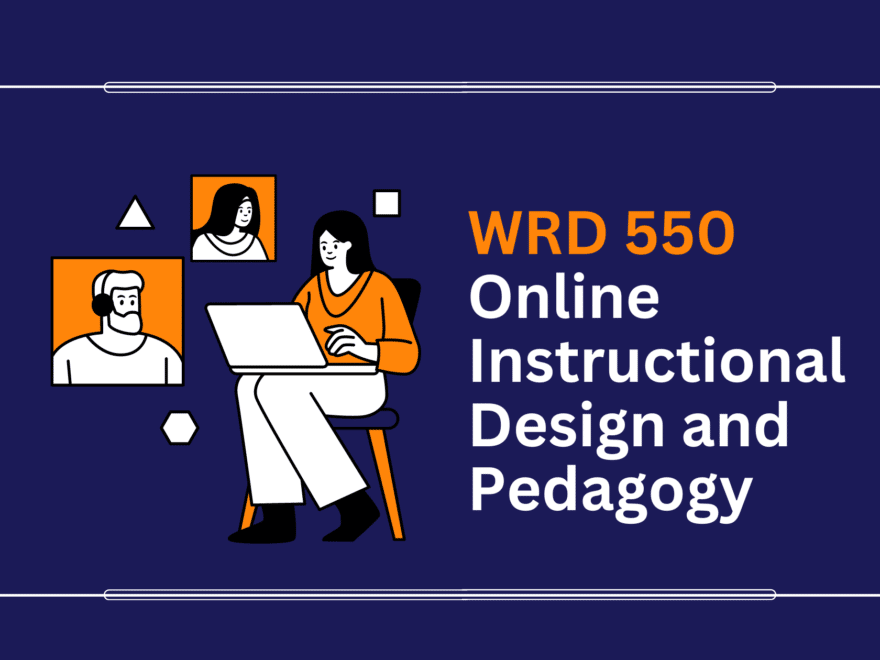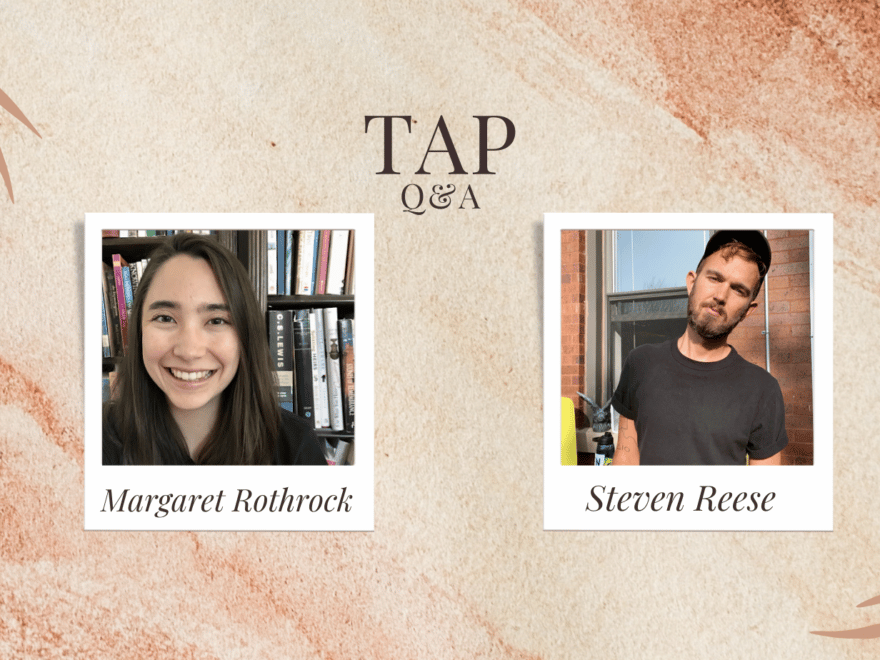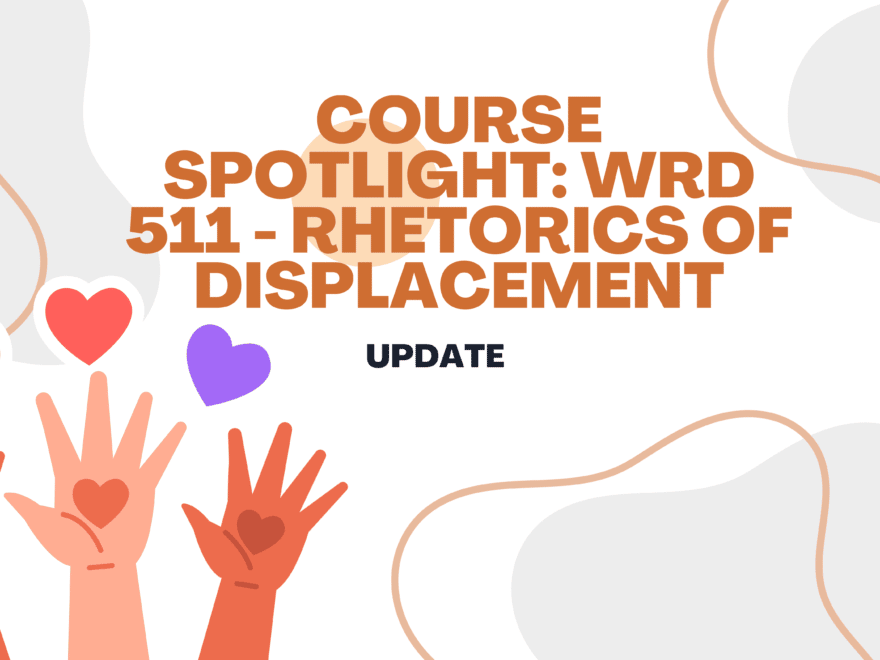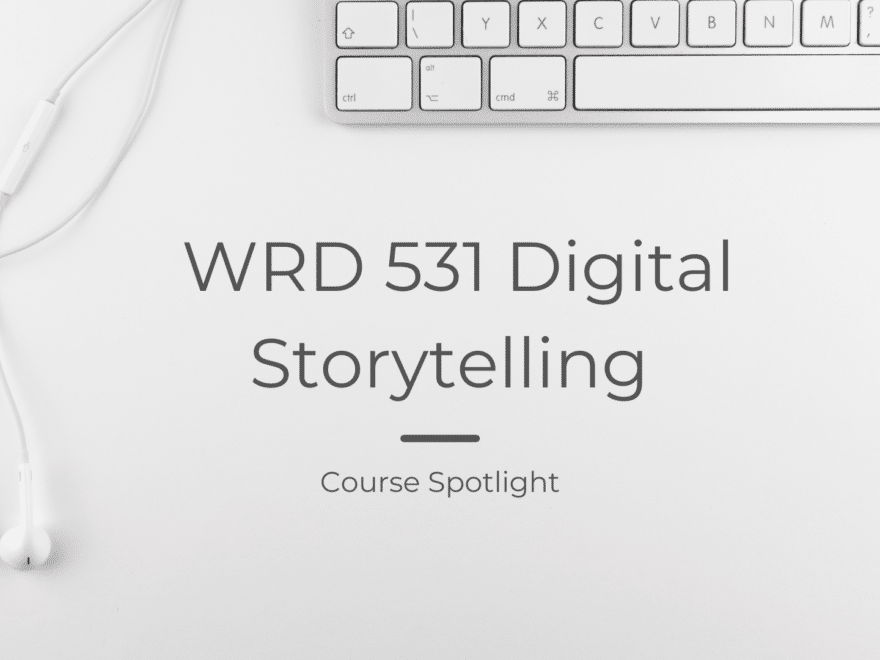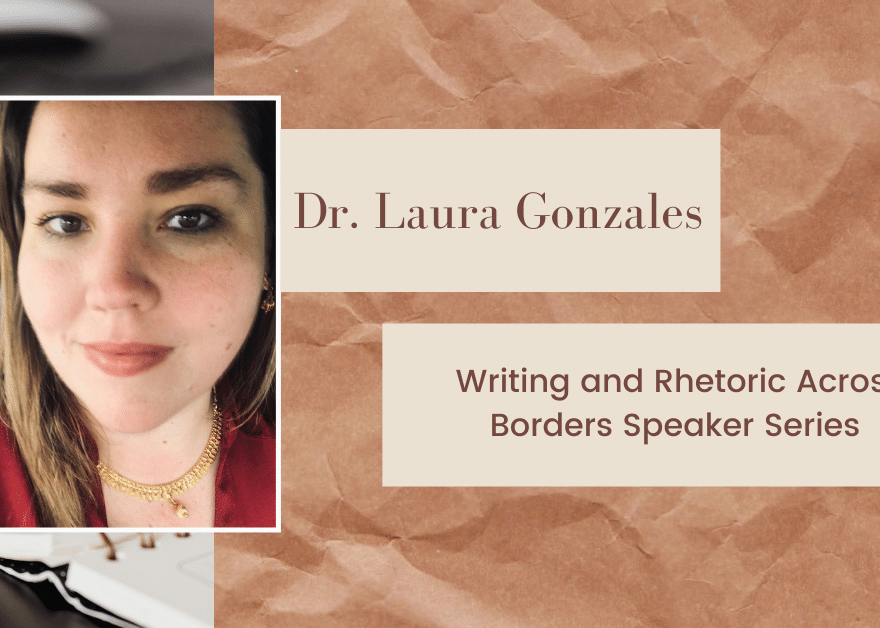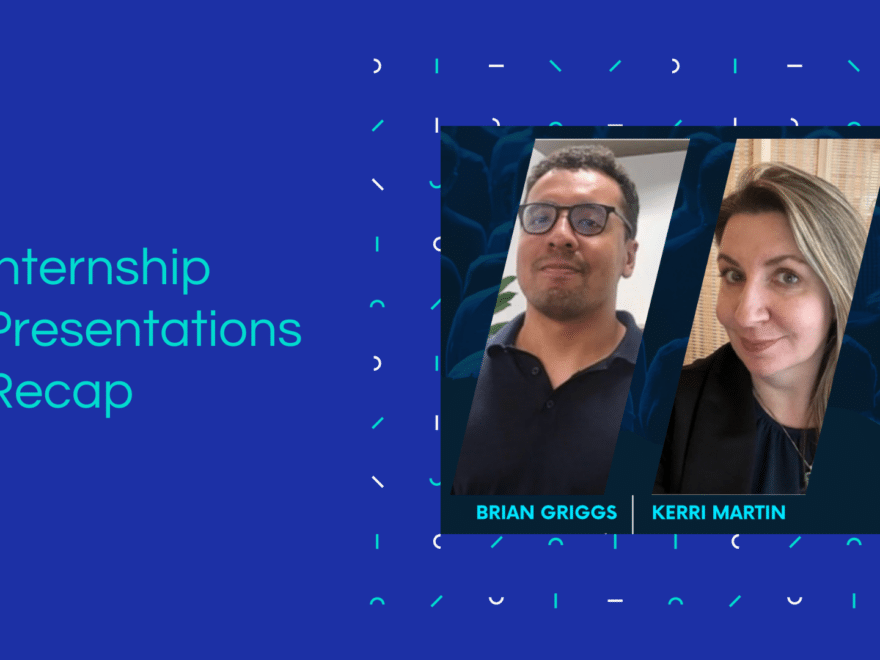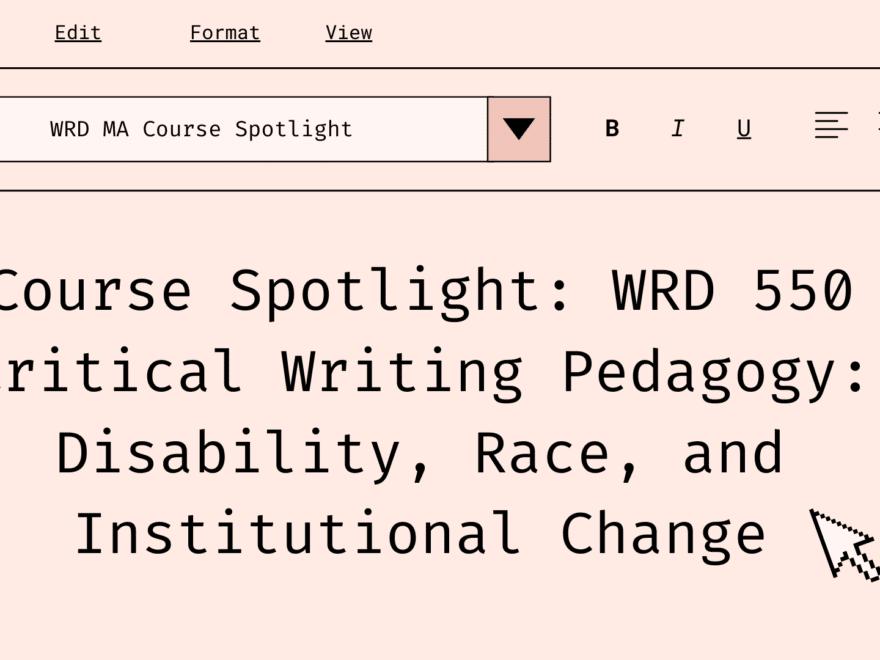As registration begins for Spring Quarter 2023, the WRD blog is excited to showcase several brand-new course offerings, beginning with Sarah Brown’s graduate course WRD 550: Online Instructional Design and Pedagogy. As an MAWRD alumna, Brown has worked in instructional technology and faculty development at DePaul’s Center for Teaching and Learning for over a decade, and she has taught several courses in the WRD department. In 2021, Brown received the Excellence in First-Year Writing Teaching Award from WRD. Here, she shares more about her plans for the course and what students can look forward to learning. As we get started,
Continue reading